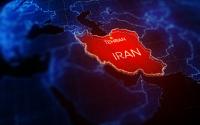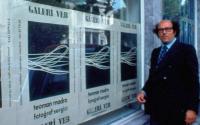July 20, 2004The GuardianThe following correction was printed in the Guardian's Corrections and clarifications column, Tuesday July 27 2004In the article below, we mistakenly stated that a report claiming Iraq was developing mobile weapons laboratories and a long-range ballistic missile system had been published in the Observer. In fact, it appeared here on GuardianUnlimited under the headline Defector reveals extent of Iraqi weapons programme, on Thursday, April 4 2002.
* * *
So Andrew Gilligan, the BBC reporter who claimed that the government had sexed up the intelligence about Iraq's weapons of mass destruction, was mostly right. Much of the rest of the media, which took the doctored intelligence at face value, was wrong. The reward for getting it right was public immolation and the sack. The punishment for getting it wrong was the usual annual bonus. No government commissions inquiries to discover why reporters reproduce the government's lies.
All journalists make mistakes. When deadlines are short and subjects are complicated, we are bound to get some things wrong. But the falsehoods reproduced by the media before the invasion of Iraq were massive and consequential: it is hard to see how Britain could have gone to war if the press had done its job. If the newspapers have any interest in putting the record straight, they should surely each be commissioning an inquiry of their own. Unlike the government's, it should be independent, consisting perhaps of a lawyer, a media analyst and an intelligence analyst. Its task would be to assess the paper's coverage of Iraq, decide what it got right and what it got wrong, discover why the mistakes were made and what should be done to prevent their repetition. Its report should be published in full by the paper.
The Observer, I think, would do less well. It commissioned some brilliant investigative reporting, which exposed many of the falsehoods reproduced elsewhere in the media. But it also carried several reports that were simply wrong. It published five articles claiming that there were "direct Iraqi links with the US hijackers" who destroyed the World Trade Centre in 2001. One suggested that "Iraqi training, intelligence and logistics were hidden behind an Islamist facade". Iraq, it claimed, "ran a terrorist camp for foreign Islamists, where it taught them how to hijack planes with boxcutters".
Three reports suggested that the anthrax attacks in the United States in October 2001 had "an ultimate Iraqi origin". Other articles maintained that "Iraq is developing a long-range ballistic missile system that could carry weapons of mass destruction up to 700 miles"; that it had developed "mobile factories of mass destruction"; and that it "has tried to buy thousands of ... aluminium tubes, which American officials believe were intended as components of centrifuges to enrich uranium". All these stories turn out to have been based on false information supplied by the Iraqi National Congress and US or British intelligence agencies.
Its editorials also appear to have been too willing to give George Bush and Tony Blair the benefit of the doubt. In November 2002, for example, the paper maintained that Saddam Hussein "expelled UN weapons inspectors in 1998; he subsequently built up an arsenal of weapons of mass destruction ... the real responsibility [for averting war] lies with Saddam himself". The paper consistently argued that we should not go to war without an international mandate, but supported the invasion when that mandate didn't materialise.
The Observer published plenty of stories that contradicted these reports. But a balance between true and false still averages out as partly false, and its readers were left not knowing what to believe. In May this year, the paper published an article by David Rose retracting some of the incorrect material. I don't think I'm alone in believing that it provided insufficient redress. It failed to deal with the allegations of links between Iraq and al-Qaida, or of Iraq's responsibility for the anthrax attacks. And it seems wrong that one journalist should take responsibility for decisions that must have been approved elsewhere. This partial retraction contrasts uncomfortably with the comprehensive apology published by the New York Times four days before. "Editors at several levels who should have been challenging reporters and pressing for more scepticism were, perhaps, too intent on rushing scoops into the paper," the NYT confessed. "Articles based on dire claims about Iraq tended to get prominent display, while follow-up articles that called the original ones into question were sometimes buried. In some cases, there was no follow-up at all."
But the Observer's sins are minor compared with those of the Times, the Sunday Times and the Daily and Sunday Telegraphs. They all appear to have been willing accomplices in the Pentagon's campaign of disinformation. By far the worst of these offenders is the Sunday Telegraph. In September 2001, it claimed that "the Iraqi leader had been providing al-Qaida ... with funding, logistical back-up and advanced weapons training. His operations reached a 'frantic pace' in the past few months". In October 2001, it reported that "Saddam Hussein has relocated his chemical weapons factories after the first case of anthrax poisoning in America ... A senior western intelligence official said that ... 'The entire contents of their chemical weapons factories around Baghdad have been moving through the nights to specially built bunkers'."
In September 2002, it reported that "Saddam Hussein is developing frightening new ways to deliver his arsenal of chemical and biological weapons, including smallpox and the deadly VX nerve agent". Another report on the same day claimed that "Saddam is on the verge of possessing crude nuclear devices that could be 'delivered' using 'unorthodox' means such as on lorries or ships ... Saddam has the capability to assemble all the components required to make nuclear weapons." In February 2003, it claimed that "Iraq's air force has advanced poison bombs".
All of these stories - and many others - appear to be false. But far from retracting them, it keeps publishing new allegations which look as dodgy as its pre-war claims. Like the Observer, it appears to have been used by black propagandists in the intelligence services and Iraqi defectors seeking to boost their credentials. Unlike the Observer, it seems happy to be duped.
So who will hold the newspapers to account? It seems that the only possible answer is you. You, the readers, must take us to task if we mislead you. Pressure groups should be bombarding us with calls and emails - you'd be amazed by the difference it makes. And if we don't respond with openness and honesty, you should cancel your subscriptions and look elsewhere for your news.






